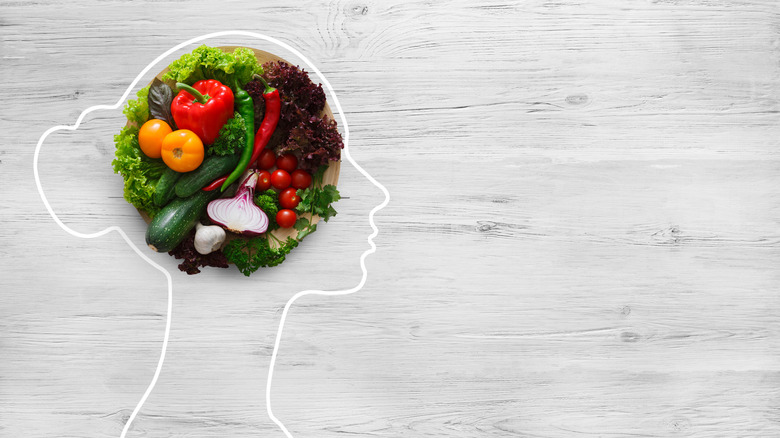What Are Psychobiotics And Should You Consider Taking Them?
If the term psychobiotics is throwing you off, don't worry, they function similarly to probiotics but have a mind-health element to them. Psychobiotic supplements focus on the gut-brain connection with the purpose of enhancing brain health (per MindBodyGreen). Prior research has shown that certain gut bacteria can improve health and medical conditions (via Harvard Health Publishing). But with over 100 trillion bacteria strains in the gut microbiota, it's hard to fully comprehend how the gut-brain connection works.
A 2015 study published in Neuroscience, examined how chronic stress in rats is influenced by Lactobacillus Helveticus NS8. The findings indicated that supplementing with this bacteria strain restored hormone levels in the hippocampus, specifically increasing norepinephrine, serotonin, and brain-derived neurotrophic factors.
A 2016 study published by Brain Research found that Lactobacillus Plantarum PS128 was responsible for disrupting emotional behaviors in mice. Researchers found this strain reduced behaviors linked to depression and anxiety while simultaneously increasing serotonin and dopamine.
While the research is still new, more trials are needed to confirm how it affects mental health. Leading researcher Bonnie J. Kaplan tells MindBodyGreen, "We weren't able to say that specific strains could benefit mental health more than what [typical] care provides you."
How to strengthen your gut-brain connection with food
While psychobiotic supplements look promising, there are other ways to strengthen your gut-brain connection. According to the American Psychological Association, microbial diversity has declined in Western diets over the past 50 years. This is likely due to many foods in our diet being low in fiber, overconsumption of fatty foods, and antibiotics being overused. In fact, one 2016 study found a low-fiber diet to be the cause of weakening microbial diversity, which also compounds over generations.
The best solution is to eat food rich in probiotics, prebiotics, and psychobiotics. Healthline suggests the best foods that support your gut-brain axis are fermented foods (e.g. kefir, sauerkraut, yogurt), foods high in fiber (e.g. vegetables, fruit, seeds, nuts, and whole grains), and omega-3 fats. Also foods rich in polyphenols such as dark chocolate, coffee, and cocoa may improve cognitive functioning, while eating foods rich in tryptophan get transformed into the feel-good hormone, serotonin.
Believe it or not, removing specific foods from your plate is equally as important. Psychiatric Times points out there are three things to avoid when eating a balanced meal that supports gut health: processed foods high in additives, sugary desserts, and packaged foods.


